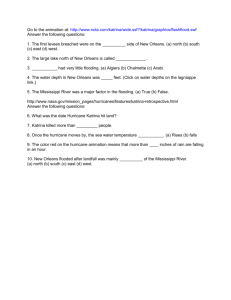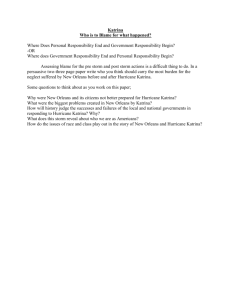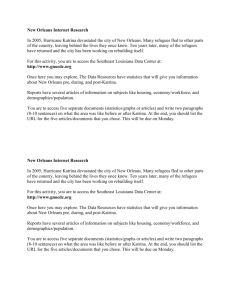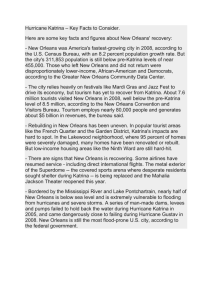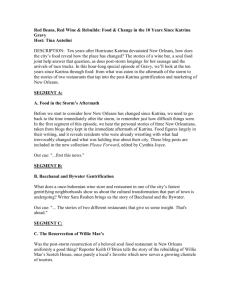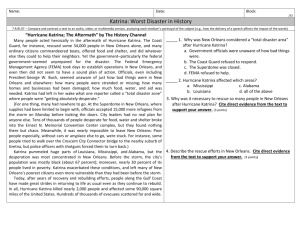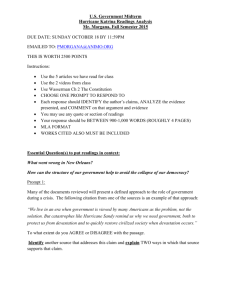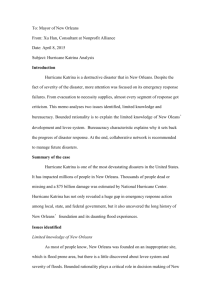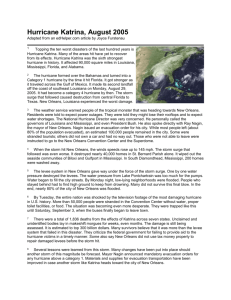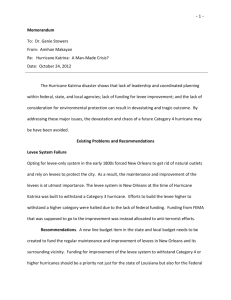File
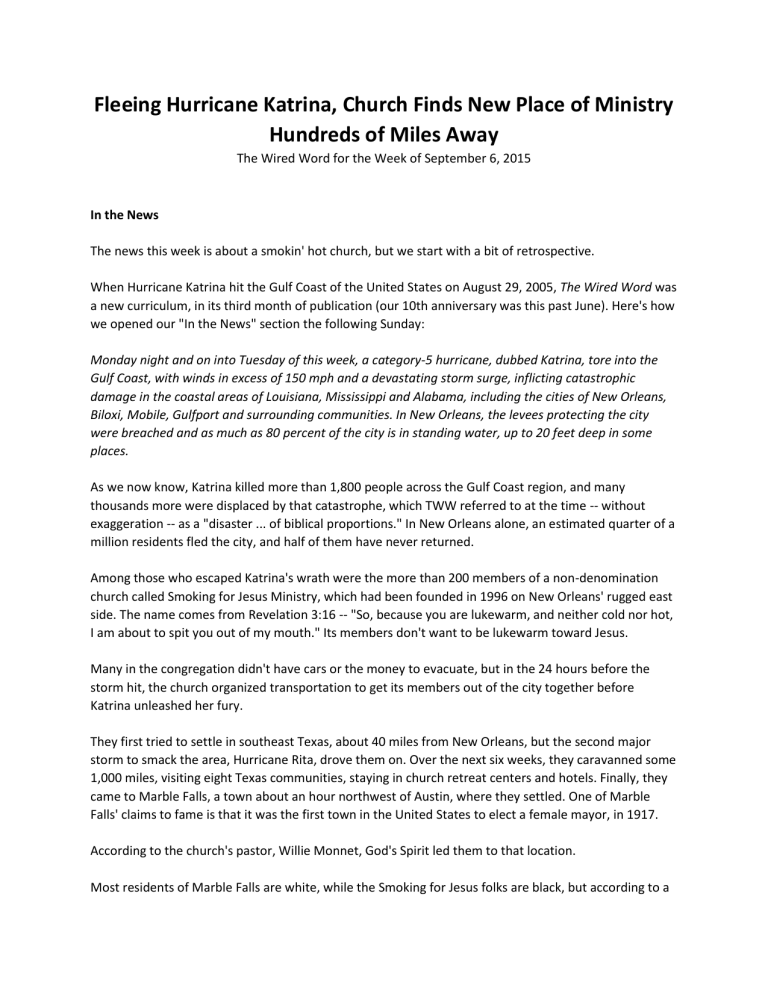
Fleeing Hurricane Katrina, Church Finds New Place of Ministry
Hundreds of Miles Away
The Wired Word for the Week of September 6, 2015
In the News
The news this week is about a smokin' hot church, but we start with a bit of retrospective.
When Hurricane Katrina hit the Gulf Coast of the United States on August 29, 2005, The Wired Word was a new curriculum, in its third month of publication (our 10th anniversary was this past June). Here's how we opened our "In the News" section the following Sunday:
Monday night and on into Tuesday of this week, a category-5 hurricane, dubbed Katrina, tore into the
Gulf Coast, with winds in excess of 150 mph and a devastating storm surge, inflicting catastrophic damage in the coastal areas of Louisiana, Mississippi and Alabama, including the cities of New Orleans,
Biloxi, Mobile, Gulfport and surrounding communities. In New Orleans, the levees protecting the city were breached and as much as 80 percent of the city is in standing water, up to 20 feet deep in some
places.
As we now know, Katrina killed more than 1,800 people across the Gulf Coast region, and many thousands more were displaced by that catastrophe, which TWW referred to at the time -- without exaggeration -- as a "disaster ... of biblical proportions." In New Orleans alone, an estimated quarter of a million residents fled the city, and half of them have never returned.
Among those who escaped Katrina's wrath were the more than 200 members of a non-denomination church called Smoking for Jesus Ministry, which had been founded in 1996 on New Orleans' rugged east side. The name comes from Revelation 3:16 -- "So, because you are lukewarm, and neither cold nor hot,
I am about to spit you out of my mouth." Its members don't want to be lukewarm toward Jesus.
Many in the congregation didn't have cars or the money to evacuate, but in the 24 hours before the storm hit, the church organized transportation to get its members out of the city together before
Katrina unleashed her fury.
They first tried to settle in southeast Texas, about 40 miles from New Orleans, but the second major storm to smack the area, Hurricane Rita, drove them on. Over the next six weeks, they caravanned some
1,000 miles, visiting eight Texas communities, staying in church retreat centers and hotels. Finally, they came to Marble Falls, a town about an hour northwest of Austin, where they settled. One of Marble
Falls' claims to fame is that it was the first town in the United States to elect a female mayor, in 1917.
According to the church's pastor, Willie Monnet, God's Spirit led them to that location.
Most residents of Marble Falls are white, while the Smoking for Jesus folks are black, but according to a
Yahoo News story about the church's odyssey, the whole county welcomed them. In time, they were able to purchase a 56-acre ranch in nearby Kingsland that had once been the site of an orphanage and already had a church building. Since then, eight families from the congregation have purchased lots on the campus and built new homes.
Several members have also started businesses in the area or work in the Real New Orleans Style
Restaurant that the church opened in Marble Falls, which has become a popular eatery.
The church has now grown to about 300 members, including some local people of other ethnicities.
Pastor Monnet says, "We have a mixture now ... 'cause they wanna figure out what we smokin' here."
It sounds like they are high on the Lord.
In occurs to us here at The Wired Word that the members of the Smoking for Jesus Ministry had become people of the "diaspora." (Pronounced di-AS-po-ra, the word is from a Greek root meaning "to spread about" or "to sow.") Diaspora usually refers to the scattered members of a religious community separated from the main body of fellow believers because of circumstances not of their own choosing -- and usually unpleasant. While the members of the Smoking for Jesus Ministry no doubt found fellow
Christians already in Marble Falls, they may still be considered people of the diaspora in terms of being driven out of their hometown by circumstances beyond their control.
More on this story can be found at these links:
Hurricane Katrina Forced Their Church From New Orleans, but ... Yahoo New s
Smoking for Jesus Ministry
The Big Questions
Here are some of the questions we will discuss in class:
1. How does diaspora fit into God's plans for people of faith? Is there a sense in which all Christians are people of the diaspora, and if so, what is the homeland from which we are separated?
2. Think about a time when you may have reluctantly relocated (perhaps because of a job, a spouse's job, a health reason, etc.). What responsibility, if any, did you feel toward the people in your new location? Why?
3. When, if ever, have you felt that the Lord was active in a relocation you hadn't expected to make?
4. When has a relocation given you fresh insight or renewed vigor in your faith? Why? If you have not relocated, how has staying put contributed to your faith?
5. What does it mean that God is both localized (close to you) and unbounded (involved with the whole creation)?
Confronting the News With Scripture and Hope
We will look at selected verses from these Scripture texts. You may wish to read these in advance for
background:
Jeremiah 29:1-14
Psalm 137:1-9
Matthew 6:25-34
Acts 2:43-47
Luke 17:20-21
In class, we will talk about these passages and look for some insight into the big questions, as well as talk
about other questions you may have about this topic. Please join us.
